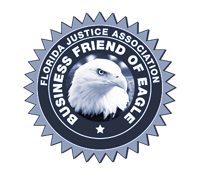Injured? Get Cash Now!

Best Price
Guarantee

Injured? Get Cash Now!

Best Price
Guarantee
Blog
Suffering From a Knee Injury: Understanding Knee-Tear Repair Surgery
March 30, 2016, on Articles | Share
Many people have suffered from a knee injury at one point in their lives. Whether the injury occurred while playing a sport or it happened due to some other event, the results of a knee injury can be long-lasting. Some of the more serious knee injuries are sustained during motor vehicle accidents. We encourage those considering knee-tear repair surgery to take note of the following information and continue seeking consultation from their physician, as this information is not intended to replace guidance from a medical professional.
Why Surgery May Be Necessary
As noted above, knee surgery may become necessary for any number of reasons ranging from participating in an outdoor activity to being injured in a car crash. Those who are hurt in a motor vehicle accident may experience injury to their posterior cruciate ligament (PCL), which is toward the back of the knee.
The anterior cruciate ligament (ACL), which is toward the front of the knee, is most commonly injured during activities like football, basketball or skiing. The medial collateral ligament (MCL), which is on the inner side of the knee, is typically injured by a blow to the outer side of one’s knee.
When an individual experiences a complete tear of a knee ligament, knee ligament repair surgery may be necessary, as the tear may result in the person being unable to perform his or her normal activities. The surgery typically involves replacing the ligament with a portion of healthy tendon.
Understanding the Risks
All surgical procedures come with certain risks. Complications can happen, which include possible infections, blood clots and bleeding. Some individuals face a limited range of motion in the knee, as well as periodic swelling after knee repair surgery.
Preparing For Surgery
Prior to undergoing surgery, the healthcare provider handling the surgery should fully explain the procedure and allow you to ask questions. You will be asked to sign various forms, one of which will be a consent form that gives the healthcare provider permission to perform the surgery. Be sure to read the document carefully and if you do not understand something in it, do not hesitate to ask questions.
Your healthcare provider will also need to know of any allergies you may have, as well as the types of medications you are taking. You may also be asked to fast prior to the surgery (usually for 8 hours).
During Your Surgery
It is important to note that surgical procedures will vary based on your surgeon’s practices, as well as your physical condition. You may be placed under general anesthesia that will put you to sleep, or the surgery may be performed while you’re awake under spinal anesthesia.
In general, the skin covering the surgical area will be cleaned and a small incision will be made. The surgery will be performed using a small tube-shaped instrument, the torn ligament will be reattached or reconstructed, small holes will be drilled in the area where the ligament was attached and ultimately, the incision will be stitched or stapled closed.
What to Expect After Surgery
Once the surgery has been done, you may receive a knee immobilizer and/or crutches prior to going home. When you get home, be sure to follow your doctor’s instructions with respect to keeping the surgical site clean. Additionally, if you experience any swelling, bleeding, drainage from the surgical site, increased pain around the surgical area and/or fever, you should contact your doctor right away.
You may experience some difficulty with performing your normal routine for a few weeks due to limited mobility. That said, you may want to consider having someone help you with certain household chores, as well as driving.
How IFN Can Help
Injury Funds Now (IFN) can provide a Florida lawsuit cash advance for many types of surgery claims. Injured parties who are working with attorneys are encouraged to contact us after they’ve had surgery to find out how we can help them meet their financial obligations while they continue to recover and await an outcome to their case. In some cases, IFN may even be able to advance funds towards surgical co-pays if the doctor or hospital is not able to cover everything on an LOP. In those cases, please feel free to contact us prior to your surgery and make sure to include the amounts you need to get your surgery done.
Once you apply to IFN, you will receive a response, typically within 24 hours of applying. You will not be subjected to a credit, income or employment check and there are no unknown fees associated with the cash advance. To learn more about our application process, call the Injury Advance Hotline at 1-866-68-FUNDS (36837) or use the online contact form.
Standard Search
Categories
Tags
Month Archives
- March 2020
- February 2020
- July 2019
- May 2019
- April 2019
- March 2019
- February 2019
- January 2019
- December 2018
- November 2018
- October 2018
- September 2018
- June 2018
- May 2018
- April 2018
- March 2018
- February 2018
- September 2017
- August 2017
- July 2017
- June 2017
- May 2017
- April 2017
- March 2017
- February 2017
- December 2016
- November 2016
- October 2016
- August 2016
- July 2016
- June 2016
- May 2016
- March 2016
- February 2016
- January 2016
- November 2015
- October 2015
- August 2015
- July 2015
- April 2015
- March 2015
- February 2015
- January 2015

What clients are saying:
"I was able to pay April's rent as well as the balance for the month of March and I paid the FPL and phone bills. I wish I had known about your company before it would have saved my family and me many headaches. Thank you."
- Jane D., plaintiff
"In my time of need Injury Funds Now helped me when no one else would. They provided me with understanding and most of all treated me like a human being."
- Jacqueline D., plaintiff
"Quick, professional & easy to work with"
- Attorney Michael A. Haggard, Esq








